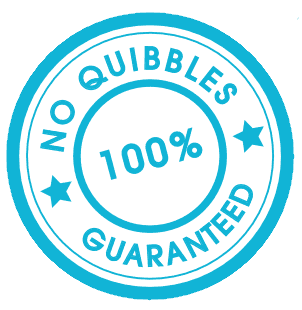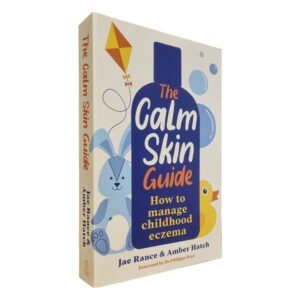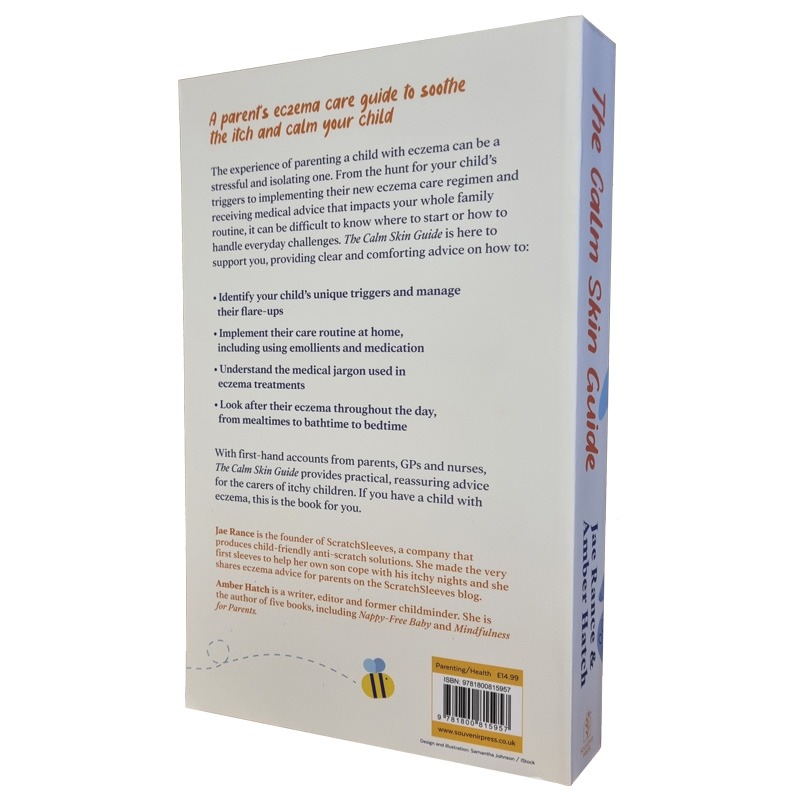Egg-free eating: A parent’s guide to catering for an egg-free diet



You’ve just been told that your little one is allergic to eggs. First there’s the relief that there is definitely something you can do to help them. Then there’s the slightly panicky feeling that you have no idea what foods have eggs hidden in the ingredients list and how to go about creating a healthy egg free diet for your eczema child. Fear not, the ScratchSleeves team have put together a beginners guide to egg free eating.
Common foods with hidden egg content
Eggs are a really versatile ingredient so it’s not surprising that they can be found in a huge range of products. Here’s list of some of the most common foods that often include egg in their ingredients:
- Pasta and noodles – although egg free versions are usually easy to find
- Mayonnaise and other mayo based condiments including tartare sauce and thousand island dressing
- Most cakes and biscuits including pancakes, waffles, muffins, cheesecake. A useful rule of thumb is that a yellow appearance usually indicates eggs. Pre-prepared baking and pancake mixes typically contain powdered egg.
- Glazes on otherwise egg free baked good like pastries and bread products
- Some meatballs, burgers and sausages use egg as a binding agent.
- Most ice creams, gelato and sorbet and Mcflurry-style milk shakes include egg as a foaming agent. Don’t panic, there are some excellent free-from alternatives available

While this list looks quite daunting, it’s really just a case of reading the labels. Free-from versions of most products are readily available in bigger supermarkets, but you may need to look in the free-from sections rather than the general aisles.
Top top: If you order your groceries online, most supermarket websites allow you to filter their search results by allergen.
Understanding food allergy labelling
In the UK and EU, information on the most common allergens, including egg, must be available for packaged and prepared food by law. If a product contains any of the main 14 allergens as either an ingredient or processing aid (for example, egg shells can be used to clarify soups), it must be highlighted in bold or italic on the label. There are a number of egg based ingredients with slightly obscure names, but these should be clearly referenced, for example: Albumin (Egg). Similar rules now exist in most other developed countries. Although the number of allergens that must be disclosed does vary between countries, egg is included in all of these rules.
If a product has been produced in an environment that may result in allergen cross-contamination, the label should include either: ‘may contain… ‘ or ‘not suitable for someone with … allergy. The legislation states that this precautionary labelling should only be used if there is a genuine risk of allergen cross-contamination.
In the UK, ‘free-from’ branding is also tightly controlled and can only be used if the product can be shown to be completely free of the particular allergen. This includes checking that all ingredients and packing materials do not contain this allergen and that cross-contamination from other foods made on the same site is prevented. There is one exception to this rule: gluten-free labelled products can contain a maximum 20mg/kg of gluten.
Replacing the nutritional content of eggs
The main problem with an egg free diet is not the risk of malnourishment. The nutrients in eggs are available in many other foods. It is more a case of persuading your child to eat a wide variety of the more ‘boring’ and healthy foods, while missing out on the yummy baked treats which line the shelves of supermarkets and cafes. Aim for plenty of different vegetables (for vitamins and minerals) together with pulses, meat, fish or dairy (for protein).
If your child has had egg allergy medically diagnosed, you should have been offered an appointment with a paediatric dietitian to help you understand the dietary implications of an egg free diet.
Key nutritional components of egg
- Protein can be replaced with fish, pulses (including baked beans), dairy products and, of course, meat.
- Vitamin B12 is needed to form red blood cells and DNA. It is also a key player in the function and development of brain and nerve cells. One egg contains 46% of an adult’s daily requirement. B12 is only found in animal food sources: meat, fish and dairy are alternative sources.
- Vitamin D is thought to calm eczema by dampening down inflammatory immune responses, read more here. Vitamin D can be made within the body when the skin is exposed to sunlight. In less sunny climates, food is an important source. Salmon, butter and dairy are good sources. The UK government recommends all children under 4 take a daily vitamin D supplement.
- Lutein and Zeaxanthin are carotenoids associated with eye health. While eggs are a great source, they can also be found in brightly coloured vegetables including spinach, kale, peas, peppers and sweetcorn.
- Choline is used by the brain and nervous system to regulate memory, mood, muscle control, and other functions. It is also used to form the membranes that surround cells and support liver function. Read more about the importance of good liver function for eczema sufferers here. Although choline is found in many foods, eggs are an important source with one egg providing 60% of an adult’s daily requirement. Other sources include meat (especially liver), soybeans, mushrooms, potatoes and dairy.
Cooking without eggs
While there the supermarkets typically carry a reasonable range of egg free products, they are often aimed at adults and the child-friendly options, especially birthday cakes, are often disappointing. This means that you are likely to want to cook and bake from scratch more often. There’s no getting around the fact that cooking and, in particular baking, without eggs does take a bit of practice.
The first thing to understand is that eggs serve multiple purposes in different foods. In cakes they act as a raising agent and add moisture, structure and stability. They help thicken and emulsify sauces and custards. They can be used as the glue to hold burgers together and to stick breadcrumbs to fish fingers. This means that there is no one ingredient that you can use to replace eggs in every recipe.
Store cupboard egg substitutes
The rise of plant-based eating has resulted in a proliferation of egg replacement products on the supermarket shelves. However, there are also plenty of store cupboard options including:
- applesauce – try our yummy applesauce muffin recipe
- mashed banana
- arrowroot
- linseeds (flax seeds) soaked in water
- mashed avocado
- vegetable oil (1.5 tbsp) + baking powder (1tsp) + water (1.5 tbsp)
- aquafaba (the liquid from a jar or tin of chickpeas)
- golden syrup – this is used in our reliable egg-free sponge cake recipe
- pureed silken tofu
- yoghurt
- coconut cream
- carbonated water.
When replacing egg in a recipe, you’ll need to think about which function you are looking to replicate: as a binder, egg hold mixtures together, in which case golden syrup, yoghurt or mashed banana can be useful; as thickeners, they add bulk to recipes, mashed fruit or arrowroot can work here; and, as emulsifiers, egg yolks contain some amino acids, aquafaba can be useful here. That said, no egg replacement products perfectly mimic eggs. It’s best to start with egg-free recipes, designed for egg replacements, while you get the hang of using them. Most commercial egg replacement products have recipes on their websites and there are plenty of egg-free recipes available online, including our tried and tested cake and pancake recipes.
Eating out
In the UK, new legislation means that eating with allergies out is no longer the minefield that it once was. All food outlets have to provide allergy information. ‘Are there any allergies?’ is often the first thing waiting staff will ask you. That said, it’s sensible to avoid self-service areas, buffets and salad bars as they contain a very real risk of cross contamination from one dish to another.
If you’re not in the UK or a country with similar allergy information rules, it’s worth calling ahead/checking the venue’s website to confirm that the venue can definitely cater for your child’s allergies. If possible avoid eating at peak times. This means that the staff have time to be attentive and check ingredients with the chefs if necessary. Stick to “simple” foods without sauces or marinades that could contain many ingredients which cannot always be remembered by staff.
Birthday parties with allergies
Birthday parties can be challenging, especially the ones where the parents are doing the catering. The harried hosts have more than enough to deal with and may not be familiar with catering for an egg free diet. There are a couple of possible approaches allergy parents can take:
- Talk to the hosts before the day to ensure that there are things on the menu that your child can and will eat. Most hosts will be more than happy to make sure your child is catered for and may well ask for recommendations for allergy friendly foods and cake suppliers.
- Take a packed lunch/tea for your child. You’ll need to make sure it contains proper party food if you want to avoid a tantrum. It’s worth finding out what sort of food the host is providing so that you can provide something similar. No-one like being the odd-one-out in front of their friends.
- The birthday cake is the main event but most contain eggs in both the cake and the icing. Find out from the host if the cake is being put in party bags or being served at the party. If it’s going into the party bags, be ready to make a quick exchange before the bag and child end up together in the back of the car on the way home. If it’s being served up at the party and you’re feeling brave, you could offer to supply the cake or contribute to the additional cost of an egg-free version.
- Plan to stay at the party. This is easy when the children are young, but you might face some resistance from your child as they get older. The hosts are usually more than happy for adults to stay.
- Many party foods only appear at birthday parties so may be unfamiliar to your child. Introducing them to common party foods like sausage rolls, cocktail sausages, jelly, Party Rings and Ice Gems before they attend any parties will make sure they know which are okay to eat and which they need to check with an adult will make the party less stressful for all concerned.
In summary
Once you have worked out which basic products you can use, have got into the habit of reading labels on everything and have found a few favourite ‘go to’ baking recipes you should find that egg-free eating is more a case of persuading your child to eat a wide variety of different foods than worrying about what they can’t eat. Eating outside the home is a little more tricky, but with the recent changes to UK legislation, is becoming easier. The only real challenge is birthday parties.
Here at ScratchSleeves, we don’t just share our experiences of bringing up an eczema child and favourite allergy-friendly recipes. We also manufacture and sell our unique stay-on scratch mitts and PJs for itchy babies, toddlers and children. We now stock sizes from 0-adult years in a range of colours. Visit www.scratchsleeves.co.uk to see our range of eczema-friendly clothing for babies, children and adults.
The Calm Skin Guide
Love our blog? It's also available in book format with:
- First hand accounts from parents & medical professionals
- Easy navigation
- Comprehensive index
- Additional material
Signed copies available at no extra cost
Written by:
Interesting article? Don't keep it to yourself...
Read next...
You may also find helpful...
Quick buy


Multi Buy Discount

Spend between £30 - £60 and save 5%
Spend between £60 - £120 and save 10%
Spend over £120 and save 15%
Discount automatically applied at checkout
No Quibbles Guarantee

ScratchSleeves abide by a no quibbles guarantee.
Free UK Postage

Free packing and postage on all UK orders. For overseas orders to Europe postage is from £3.50, to USA is £6.50 and to the rest of the world, from £3.75.






